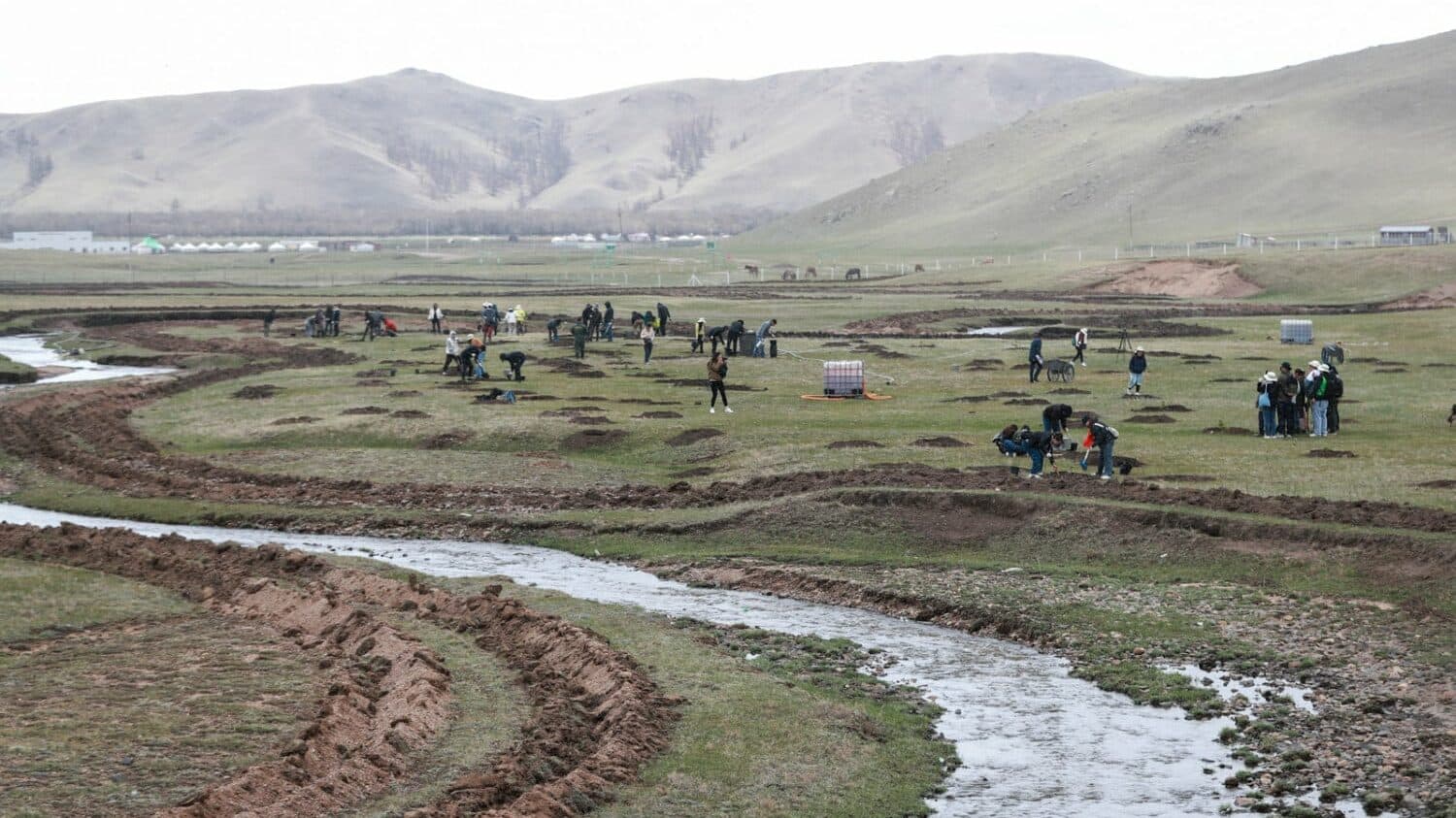
May 10, 2024 — Following the inauguration of the Friends of Asia and Asian Forests (FAAF) in February this year, Asia Forest Cooperation Organization (AFoCO) has been proactively purusing private sector partnership initiatives to help promote sustainable forest management and ‘green’ member countries. In Mongolia, AFoCO is working closely with the National Forest Agency (NFA) and the Korea-Mongollia Greenbelt Project team to pursure public-private forest partnerships.
To support cooperation between the public and private sectors, a ‘Public-Private Partnership Forest’ was established in the Gorkhi-Terelj National Park area as a project activity under the third phase of the Korea-Mongolia Greenbelt Project (2022-2026). Covering a total area of 12.5 hectares divided into two adjacent sections of 8.5 hectares and 4.4 hectares, this forest serves the dual purpose of regreening the surroundings of the National Park and offering a space for visitors and local community members to engage in forest education activities and participate in restoration and tree-planting efforts. This multi-stakeholder collaborative tree-planting effort aligns with the Mongolian government’s ‘Billion Trees National Movement,’ providing a valuable opportunity and momentum for both Korea and Mongolia.
The tree planting ceremony was attended by the Ambassador of the Republic of Korea H.E. Mr. Jin Won Choi, the Ambassador of France H.E. Mr. Sébastien Surun, NFA Director General Dr. Oyunsanaa Byambasuren, AFoCO Executive Director Dr. Chongho Park, as well as guests from the public and private sector in Mongolia and the Republic of Korea, including GIZ Mongolia, Emart, Korean Air, Yakin Corporation, Green Asia, Jeju Olle, and the Mongolian University of Science and Technology.
During the tree-planting, participants planted some 200 trees of various species (Pinus sylvestris, Larix sibirica, etc.) in the designated tree-planting area. This collaborative effort underscores the importance of joint action in environmental conservation and showcases a strong commitment to sustainable practices. As the project progresses, it is expected to serve as a model for similar initiatives worldwide, fostering greater cooperation and awareness.
About the Korea-Mongolia Greenbelt Project
The Korea-Mongolia Greenbelt Project, launched during the 2006 Korea-Mongolia Summit, aims to aid Mongolia in its fight against desertification and mitigate sand and dust storms. Since 2007, through its first and second phases, the project has established forestry training centers and planted trees (including Siberian elm, sea buckthorn, and rare Saxaul species) across more than 3,000 hectares of arid land. In the third phase, large mechanized tree nursery facilities with high seedling production capacities are expected to be established in Ovorkhangai, Khuvsgul, and Selenge provinces. By focusing on sustainable land management, afforestation, and reforestation to combat desertification, the Korea-Mongolia Greenbelt Project not only addresses immediate environmental concerns but also contributes to the long-term resilience of Mongolia’s ecosystems, serving as a successful case of international cooperation for environmental conservation and sustainable development.
All photos used in this article were retrieved from the news article at gogo Mongolia: https://gogo.mn/r/1e7gv
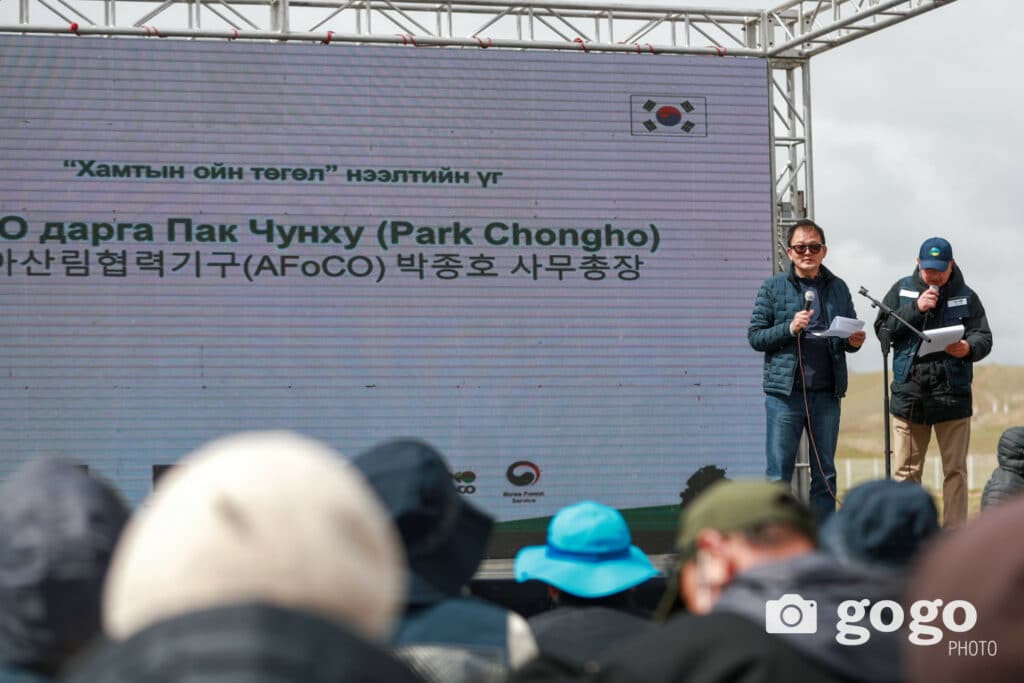
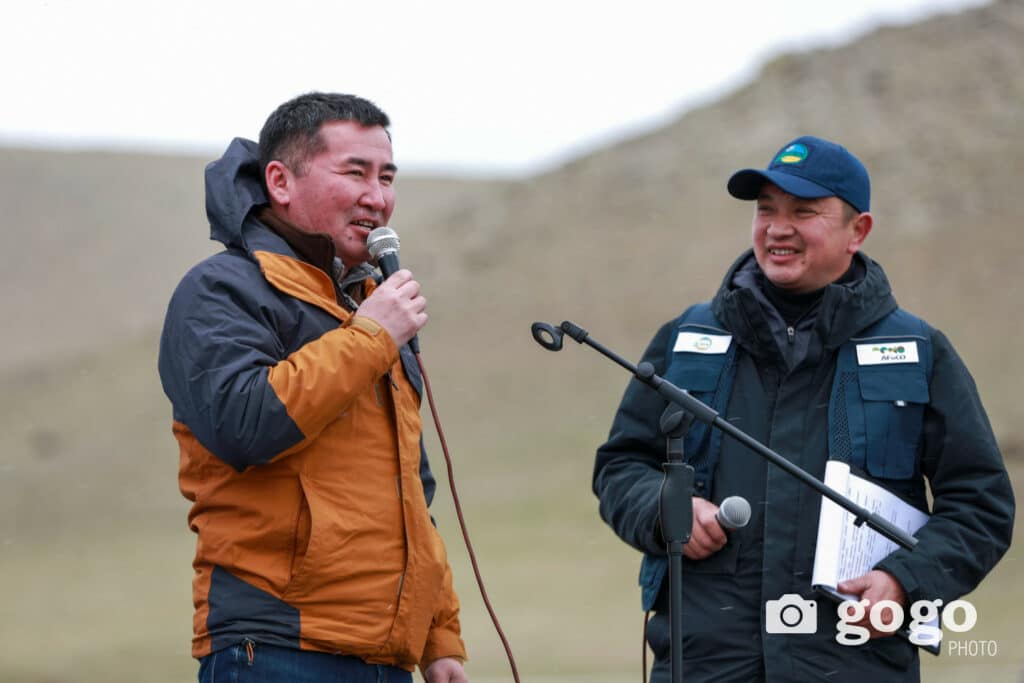
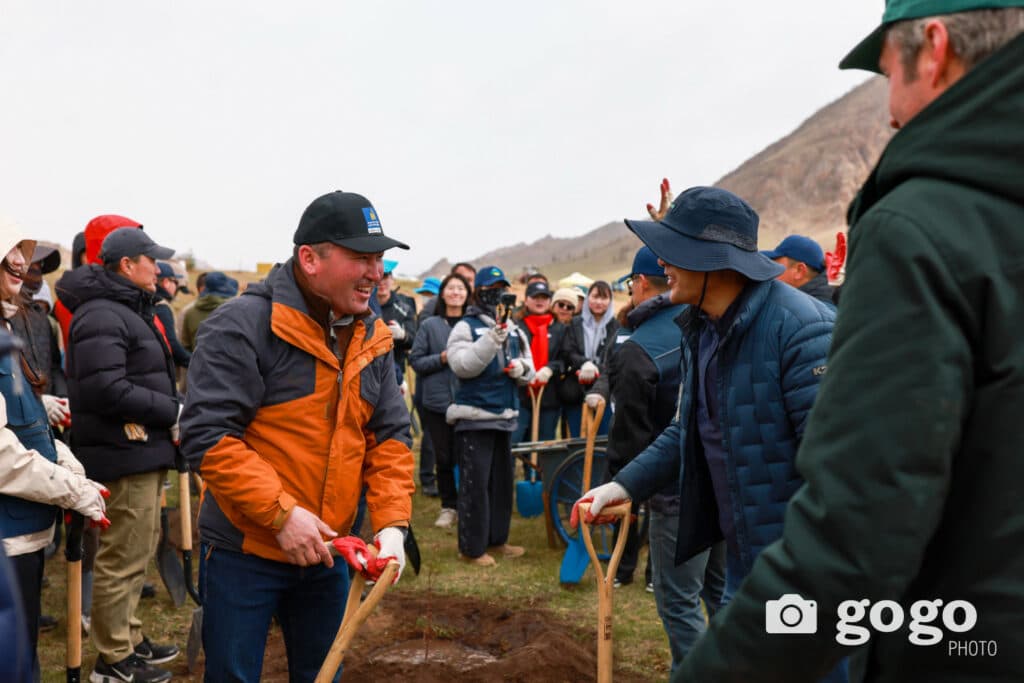
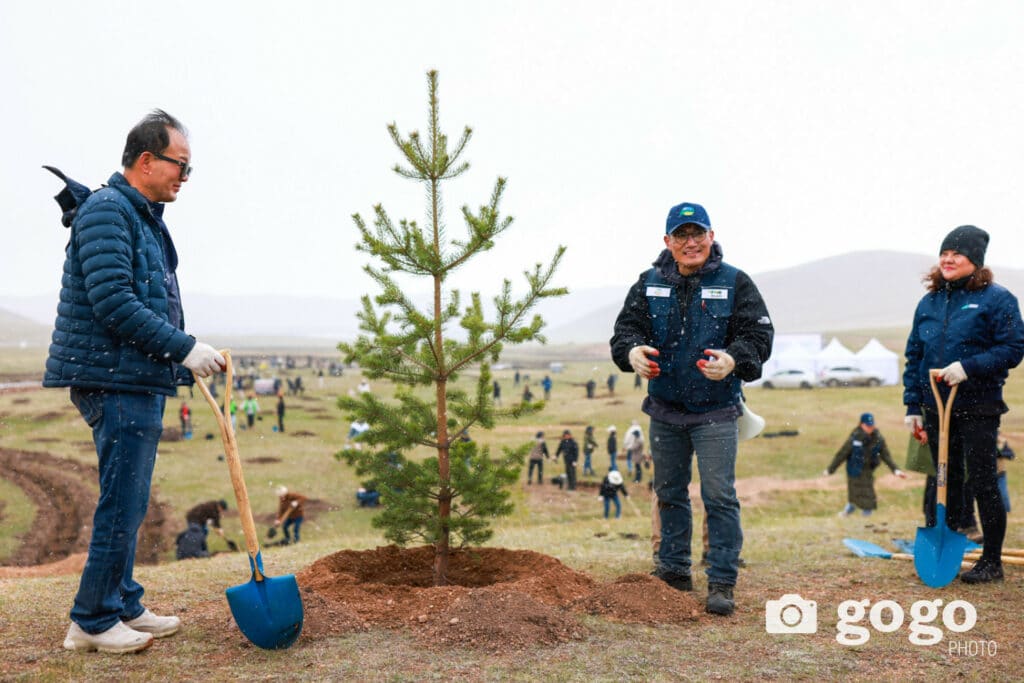
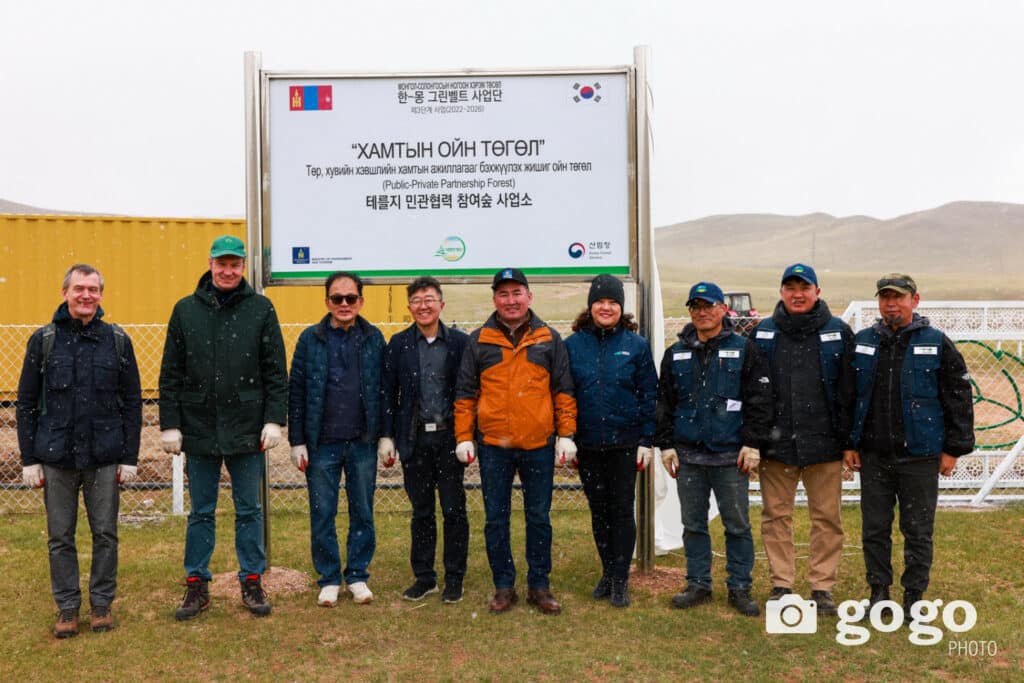
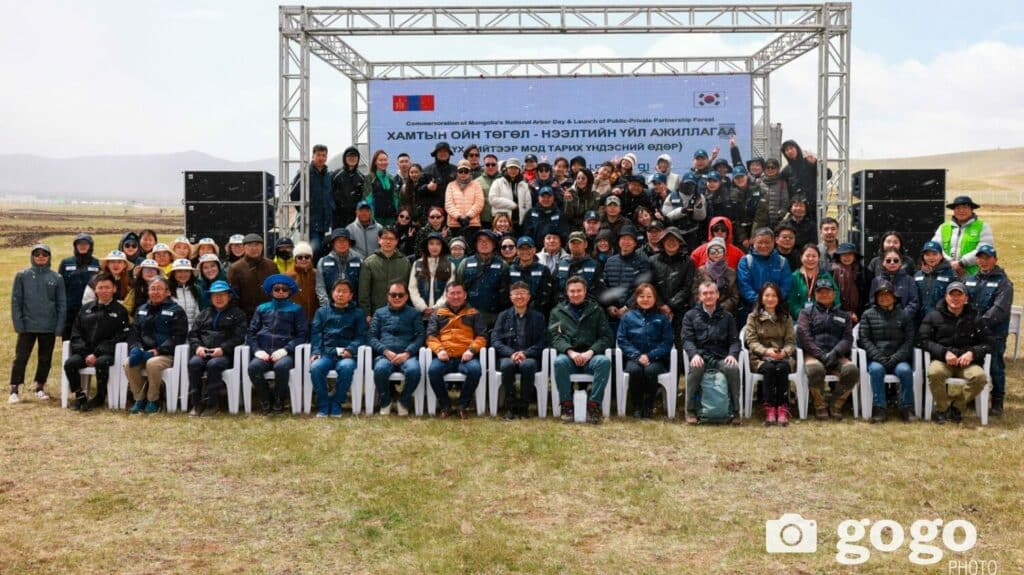
Other news coverage of the event

